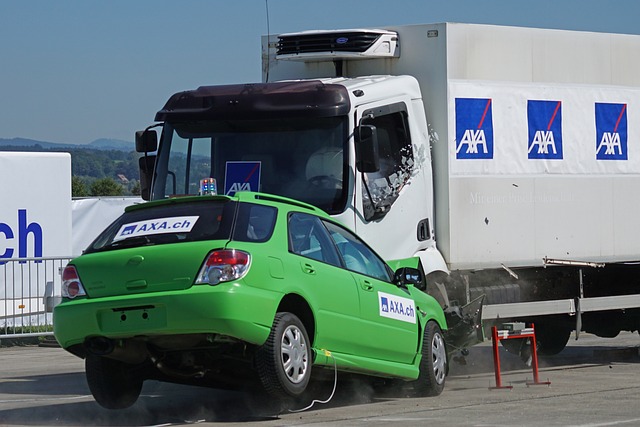Full Coverage Car Insurance provides extensive protection against a variety of risks including theft, vandalism, and natural disasters, as well as accidents. It's important to understand how auto insurance deductibles work within these plans; they are the amount you pay out-of-pocket before your coverage kicks in, and choosing a higher deductible can lower your monthly premiums. Vehicle Protection Plans, such as Collision Damage Waivers (CDWs), offer specific protection against collision damages when renting a vehicle, often with no excess to pay, reducing the financial impact of an accident. While CDWs are not a replacement for full coverage insurance, they can complement it if your personal policy lacks certain protections. For those seeking additional vehicle protection, increasing liability limits or adding specific endorsements like glass coverage, roadside assistance, or rental reimbursement can tailor your plan to your individual needs, ensuring comprehensive accident coverage and financial security on the road. Understanding both Full Coverage Car Insurance and Vehicle Protection Plans is crucial for making informed decisions about your auto insurance deductibles and overall vehicle protection strategy.
When renting a car or owning one, safeguarding your vehicle against unforeseen events is paramount. This article delves into the nuances of full coverage car insurance and collision damage waivers (CDWs), both pivotal in securing your peace of mind on the road. Full Coverage Car Insurance extends beyond collisions, encompassing a broad range of scenarios such as theft, vandalism, and acts of nature, while CDWs offer a financial safety net for rental car damages due to accidents. Understanding the distinctions between these coverages is crucial for making informed decisions about your vehicle protection plans. We will explore the impact of auto insurance deductibles on claims, the essentials of CDWs for renters, and how these options compare to enhance your coverage beyond the basics.
- Navigating Vehicle Protection: The Role of Full Coverage Car Insurance
- Understanding Auto Insurance Deductibles and Their Impact on Claims
- Collision Damage Waivers (CDWs): What Renters Need to Know
- Comparing Comprehensive Insurance vs. CDW: Key Differences for Informed Decisions
- Enhancing Vehicle Protection Plans Beyond Full Coverage and CDW
Navigating Vehicle Protection: The Role of Full Coverage Car Insurance
Navigating vehicle protection through Full Coverage Car Insurance is essential for comprehensive security against various risks. This robust insurance plan extends beyond the basic liability coverage, offering a broad spectrum of accident coverage and protection against non-collision perils. It includes provisions for incidents like theft, vandalism, natural disasters, and more, ensuring that policyholders are not left financially burdened in case of such events. With Full Coverage Car Insurance, vehicle owners can breathe easier knowing their investment is safeguarded from a wide array of unforeseen circumstances.
When considering vehicle protection plans, understanding the role of auto insurance deductibles is key. These deductibles represent the amount an insured individual must pay out-of-pocket before the insurance coverage kicks in. Choosing the right deductible balance can significantly influence the cost of your premiums; higher deductibles typically lead to lower monthly payments. It’s a strategic decision that should be made with careful consideration of one’s financial situation and the level of risk they are willing to assume. Full Coverage Car Insurance, complemented by a suitable deductible, forms a comprehensive shield against both collision and non-collision related incidents, providing peace of mind for drivers on the road.
Understanding Auto Insurance Deductibles and Their Impact on Claims
When considering full coverage car insurance options, it’s crucial to understand how auto insurance deductibles fit into your accident coverage and overall vehicle protection plans. A deductible is the amount you agree to pay out of pocket before your insurance kicks in during a claim. This financial commitment can significantly influence the cost of your premium but also the level of coverage you receive. For instance, selecting a higher deductible typically leads to lower monthly or annual insurance payments. Conversely, choosing a lower deductible means higher premiums but less out-of-pocket expense when filing a claim.
In the event of an incident covered by your full coverage car insurance policy, such as a non-collision event like theft or natural disaster, you will be responsible for paying your designated deductible before the insurer will reimburse you for the remaining costs. This means that for smaller claims, it might make more sense to pay the deductible out of pocket rather than filing an insurance claim if the repair costs are comparable. On the other hand, in the case of a collision where a CDW is not applicable, your full coverage car insurance will step in after you’ve covered your deductible, providing comprehensive protection for damages beyond what a CDW would cover. Understanding these dynamics helps ensure that drivers select the right balance of auto insurance deductibles and coverage to suit their needs and financial situation, thereby optimizing their vehicle protection plans for both routine driving and unexpected events.
Collision Damage Waivers (CDWs): What Renters Need to Know
When renting a vehicle, it’s crucial to consider the protection plans available that can mitigate financial losses in the event of an accident. Collision Damage Waivers (CDWs) are a popular choice among renters as they provide comprehensive coverage for the rental car against damages resulting from a collision, regardless of fault. Unlike auto insurance deductibles where you might be liable for a portion of the costs upfront, CDWs typically offer a ‘zero excess’ option, which means you won’t have to pay any additional fees should the vehicle be damaged during an accident. This feature makes CDWs particularly attractive to those who wish to avoid the potential financial impact of an incident while on the road.
It’s important to understand that while CDWs provide robust coverage for collision-related incidents, they do not replace the need for full coverage car insurance. Full coverage car insurance often includes additional benefits such as comprehensive coverage for non-collision events like theft, vandalism, or natural disasters. When evaluating vehicle protection plans, it’s essential to consider how CDWs complement your existing auto insurance policy. Renters with comprehensive coverage on their personal vehicles may find that they already have substantial protection, and the CDW could serve as an additional layer of safety for their rental car. Conversely, those without such coverage might benefit significantly from the inclusion of a CDW to safeguard against unforeseen collisions during their rental period. Understanding these distinctions ensures that drivers make informed decisions tailored to their specific needs, providing peace of mind and financial security on the road.
Comparing Comprehensive Insurance vs. CDW: Key Differences for Informed Decisions
When considering vehicle protection plans, it’s crucial to understand the nuances between Full Coverage Car Insurance and Collision Damage Waivers (CDWs). Full Coverage Car Insurance is a comprehensive policy that safeguards your car against a wide array of risks beyond collisions. This includes incidents like theft, vandalism, or damage due to natural disasters such as floods, earthquakes, or hail storms. A key aspect of these policies is the inclusion of Auto Insurance Deductibles, which are the amount you agree to pay out-of-pocket before your insurance coverage kicks in for comprehensive claims. This deductible plays a significant role in the cost of your premium and can affect your decision on how much coverage you wish to maintain.
In contrast, a CDW is a type of vehicle protection plan primarily offered by rental car companies that provides accident coverage specifically for collisions. Unlike Full Coverage Car Insurance, which covers a broad spectrum of risks, a CDW focuses solely on collision-related damages. This means that if you rent a car and are involved in an accident, the CDW will typically cover the cost of repairs to the rental vehicle without holding you financially responsible. It’s important to assess your travel needs to determine whether adding a CDW to your existing auto insurance policy, or relying solely on it if you don’t have comprehensive coverage, is the best choice for your situation. Both options are valuable in their own right and understanding the differences between Full Coverage Car Insurance and CDWs will enable you to make informed decisions tailored to your specific vehicle protection needs.
Enhancing Vehicle Protection Plans Beyond Full Coverage and CDW
When drivers seek to enhance their vehicle protection plans beyond the scope of full coverage car insurance and collision damage waivers (CDWs), they have several additional options to consider. One such option is to explore the benefits of higher liability limits within their full coverage policy. Liability coverage is designed to protect other people and their property if you’re at fault in an accident, and by opting for higher limits, drivers can ensure more robust financial protection against substantial damage claims.
Another strategy to bolster vehicle protection plans is to carefully assess auto insurance deductibles. A deductible is the amount a driver must pay out-of-pocket before their insurance kicks in. Choosing a higher deductible can lead to lower premiums, effectively reducing the overall cost of coverage while still providing comprehensive and collision accident coverage. However, it’s crucial to select a deductible level that aligns with your financial situation, ensuring you can cover the deductible amount without undue hardship in the event of an accident. Additionally, drivers might consider adding specific endorsements or riders to their existing policies, such as glass coverage, roadside assistance, or rental reimbursement, which can provide additional layers of security and peace of mind on the road. By thoroughly evaluating these aspects of vehicle protection plans, drivers can tailor their insurance to meet their unique needs, providing a comprehensive safeguard that extends beyond the essentials of full coverage car insurance and CDWs.
When it comes to safeguarding your vehicle, both full coverage car insurance and collision damage waivers (CDWs) are pivotal components of comprehensive vehicle protection plans. This article has delved into the nuances of each, highlighting the importance of understanding auto insurance deductibles and how they influence claims and decision-making processes. It is clear that while full coverage car insurance extends accident coverage to non-collision perils such as theft or natural disasters, a CDW specifically addresses financial accountability for rental vehicle collision damages. By comparing these options and enhancing your vehicle protection plans beyond the basics, drivers can make informed choices tailored to their specific needs and circumstances. Ultimately, the key takeaway is that a well-rounded understanding of these coverages empowers you to select the most suitable form of accident coverage for optimal security on the road.



